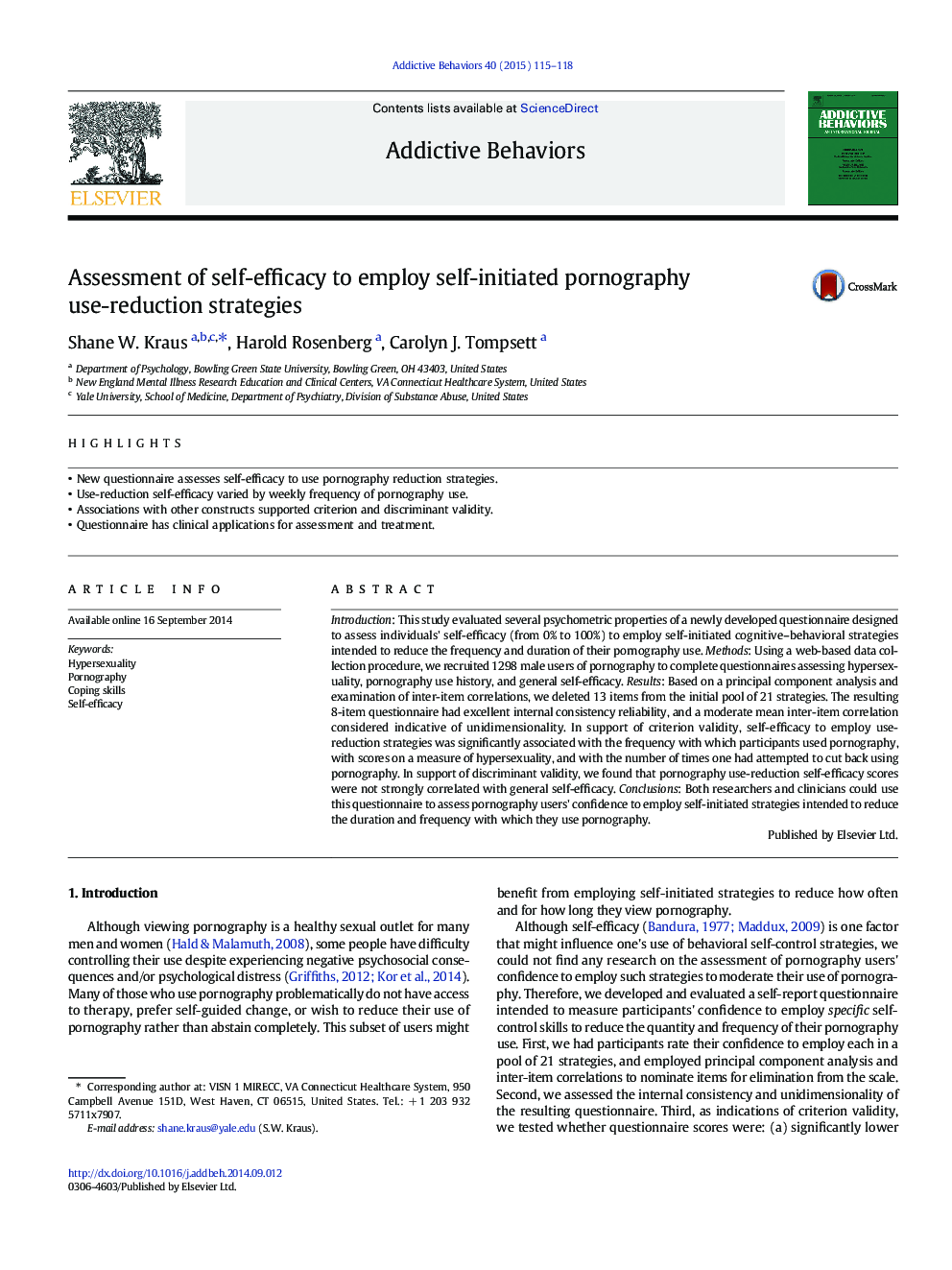| Article ID | Journal | Published Year | Pages | File Type |
|---|---|---|---|---|
| 7261250 | Addictive Behaviors | 2015 | 4 Pages |
Abstract
Introduction: This study evaluated several psychometric properties of a newly developed questionnaire designed to assess individuals' self-efficacy (from 0% to 100%) to employ self-initiated cognitive-behavioral strategies intended to reduce the frequency and duration of their pornography use. Methods: Using a web-based data collection procedure, we recruited 1298 male users of pornography to complete questionnaires assessing hypersexuality, pornography use history, and general self-efficacy. Results: Based on a principal component analysis and examination of inter-item correlations, we deleted 13 items from the initial pool of 21 strategies. The resulting 8-item questionnaire had excellent internal consistency reliability, and a moderate mean inter-item correlation considered indicative of unidimensionality. In support of criterion validity, self-efficacy to employ use-reduction strategies was significantly associated with the frequency with which participants used pornography, with scores on a measure of hypersexuality, and with the number of times one had attempted to cut back using pornography. In support of discriminant validity, we found that pornography use-reduction self-efficacy scores were not strongly correlated with general self-efficacy. Conclusions: Both researchers and clinicians could use this questionnaire to assess pornography users' confidence to employ self-initiated strategies intended to reduce the duration and frequency with which they use pornography.
Related Topics
Life Sciences
Neuroscience
Behavioral Neuroscience
Authors
Shane W. Kraus, Harold Rosenberg, Carolyn J. Tompsett,
